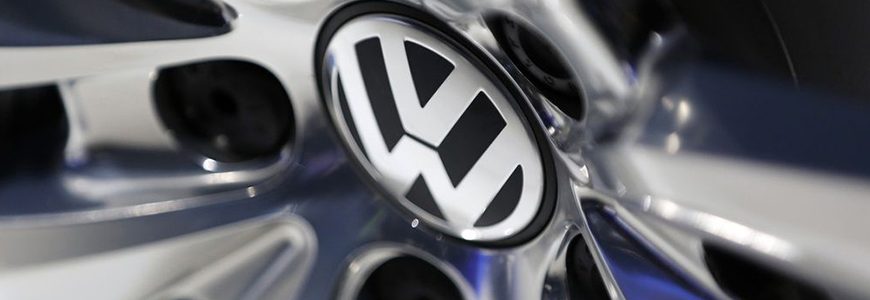
Iran made progress this week in preserving its new-found place in the global economy.
French energy giant Total SA and German carmaker Volkswagen AG announced
doors.
Iran made progress this week in preserving its new-found place in the global economy.
French energy giant Total SA and German carmaker Volkswagen AG announced agreements to plow money into the Islamic republic, the first to be finalized since U.S. President Donald Trump took office, threatening to abandon the 2015 deal that rolled back a decade of sanctions on Iran.
The investments end months of speculation that America’s shifting foreign policy would scare western companies away from taking bets on the Middle East’s fastest-growing economy. They also highlight the widening rift between Trump and European allies, who back President Hassan Rouhani even as the White House reviews the nuclear accord he helped engineer.
“People were waiting for the sign to see which direction things will go,” said Homayoun Falakshahi, a senior research analyst for Middle East and North African upstream at Wood Mackenzie consultancy in London. Total’s plan to invest $1 billion developing Iranian natural gas fields in particular, means “clearly the direction is that the likelihood of it being scrapped is not that big.”
The more business Europe has at stake in Iran, the less inclined it will be to backtrack on relations with Rouhani, who is keen to open the country to foreign investment. Iran boasts the world’s largest natural gas reserves and is home to 80 million consumers starved of most Western products for years under international sanctions.
No Dollars
If Trump wants to desert the deal, he’d need to convince Russia, a key Iranian ally, and China, which is developing the Iranian field alongside Total and local firms.
Even if Washington can’t overturn the accord, Trump’s antagonism toward Iran may make life difficult for companies seeking funding for their projects. Sanctions still bar U.S. banks from doing business in Iran, a restriction that extends to European counterparts with significant American exposure.
Investments in Iran “can’t be done with dollars or using U.S. banks,” said William Breeze, a partner at Herbert Smith Freehills LLP in London specializing in energy, natural resources and infrastructure finance. Companies will instead need to secure funding from Asia or mid-sized European lenders.
For Total, the risks are worth the potential rewards of signing a 20-year agreement that will eventually see the consortium inject $4.8 billion into Iran. “I will come back to Iran again because this contract is the first of many,” Total Chief Executive Officer Patrick Pouyanne said on July 4.
Carmakers, aircraft and drug producers are also taking their chances. Volkswagen, which last sold cars in Iran 17 years ago, signed a deal with a local importer to offer Tiguan compact SUVs and the Passat family car at dealerships in and around Tehran. France’s Peugeot SA was the first carmaker to re-enter the country last year.
Falakshahi predicts another four or five energy companies will follow with investment agreements in the next year. Royal Dutch Shell Plc and Eni SpA are already in talks on developing local fields. The Total deal was “the contract that the oil industry was watching closely and everyone was waiting for,” he said.

